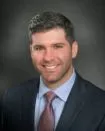On January 13, 2022, the Supreme Court granted the applications from parties who challenged the Emergency Temporary Standard (ETS) from the Occupational Safety and Health Administration (OSHA) that required employers with one hundred or more employees to, among other things, compel employees to either obtain the COVID-19 vaccine or test weekly for presence of the virus and wear a mask in the workplace.
The Supreme Court did not rule on the actual merits of the ETS but instead granted an injunction that prevents the ETS from taking immediate effect while litigation on the merits of the ETS proceeds in the lower courts. In so doing, a majority of the Court (six judges) found that the ETS was, on its face, a general public health measure as opposed to an "occupational safety or health standard." The statutes speaking to OSHA's statutory power only regulate it to address the latter. OSHA's attempt to regulate COVID-19 – which is present everywhere – would improperly expand its power to regulate the "hazards of daily life." The Court would ultimately state that, "[a]lthough Congress has indisputably given OSHA the power to regulate occupational dangers, it has not given that agency the power to regulate public health more broadly."
At the same time, a majority of the Court (five judges) allowed the Centers for Medicare and Medicaid Services (CMS) to enforce its "vaccine mandate" nationwide while litigation on the merits of that "mandate" continues. Around the same time that OSHA's ETS went into effect, the Secretary of Health and Human Services announced that facilities that receive Medicare and Medicaid funding must ensure that their staff is vaccinated from COVID-19. The Supreme Court today found that those challenging the CMS mandate were not likely to succeed on the merits because the Secretary has broad powers to impose conditions upon recipients of federal funds.
Important Takeaways
- Private employers no longer have to comply with OSHA's ETS. Litigation continues in the lower level, but the Supreme Court has clearly signaled that the ETS would likely be doomed (absent changed circulates) if or when it reaches the Supreme Court again on the merits.
- Facilities that receive Medicare and Medicaid funding must immediately work to ensure compliance with the "CMS Mandate."
- WSHB will continue to monitor all developments at the lower courts.
The content of this article is intended to provide a general guide to the subject matter. Specialist advice should be sought about your specific circumstances.
We operate a free-to-view policy, asking only that you register in order to read all of our content. Please login or register to view the rest of this article.


